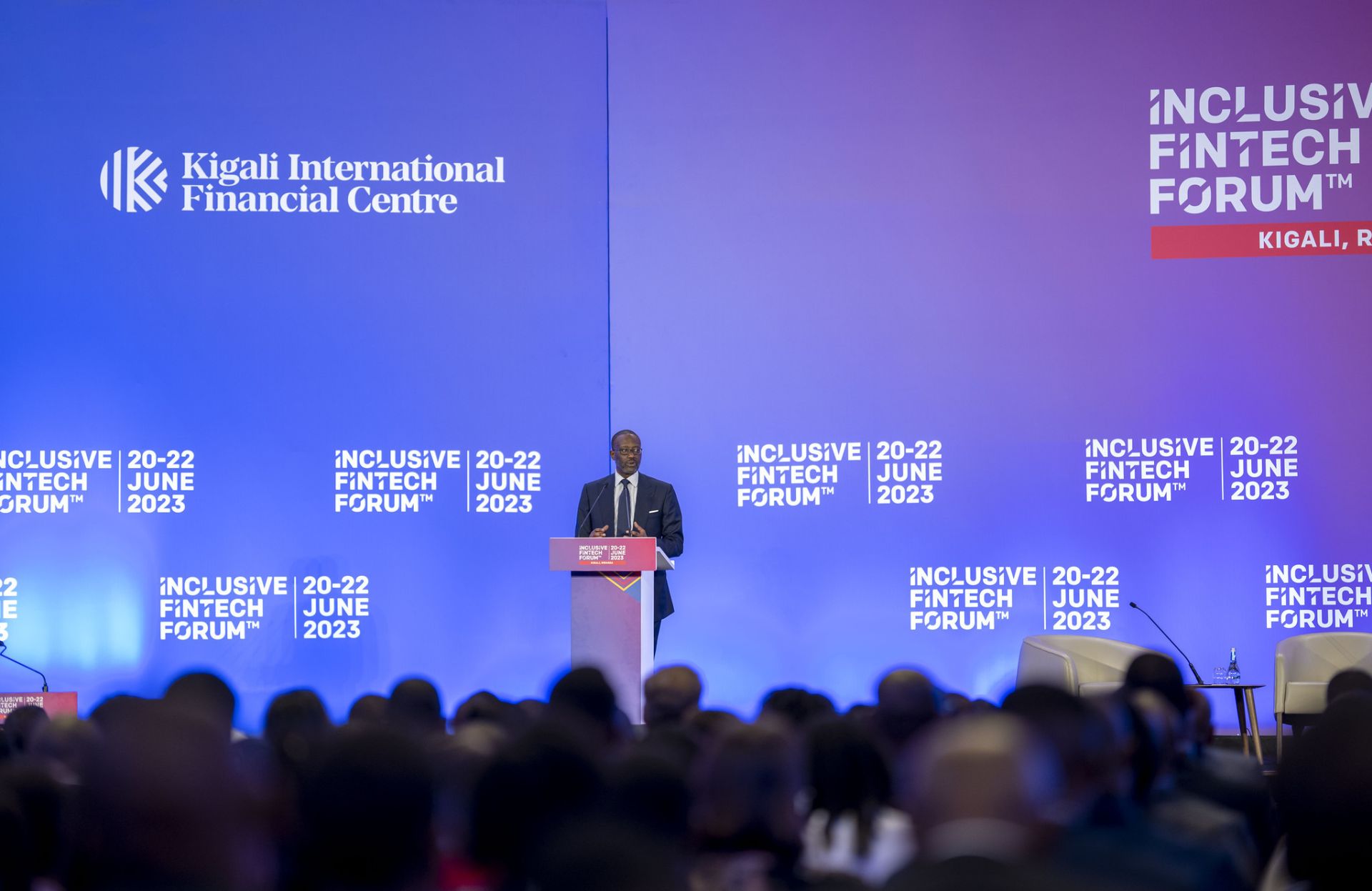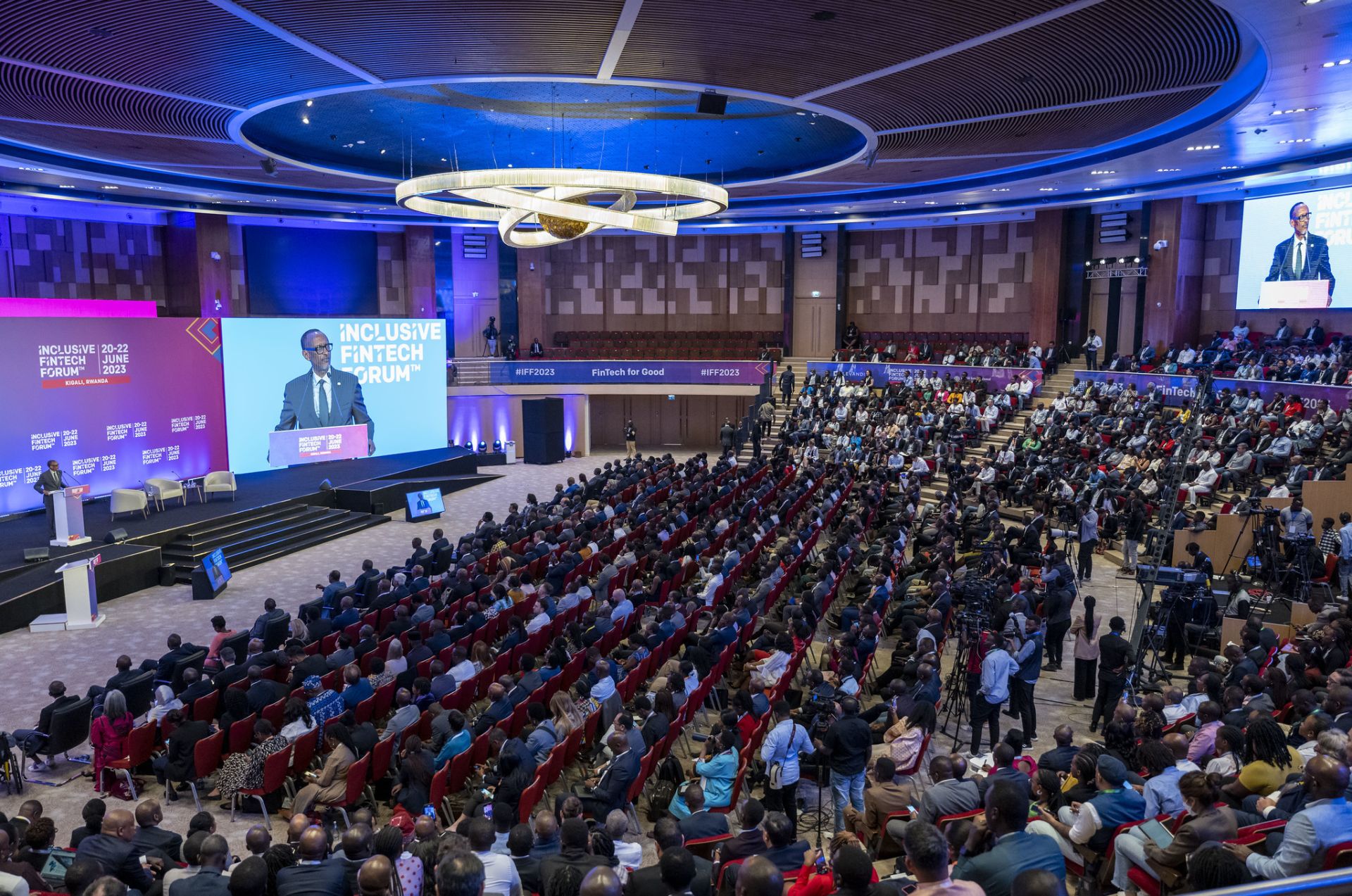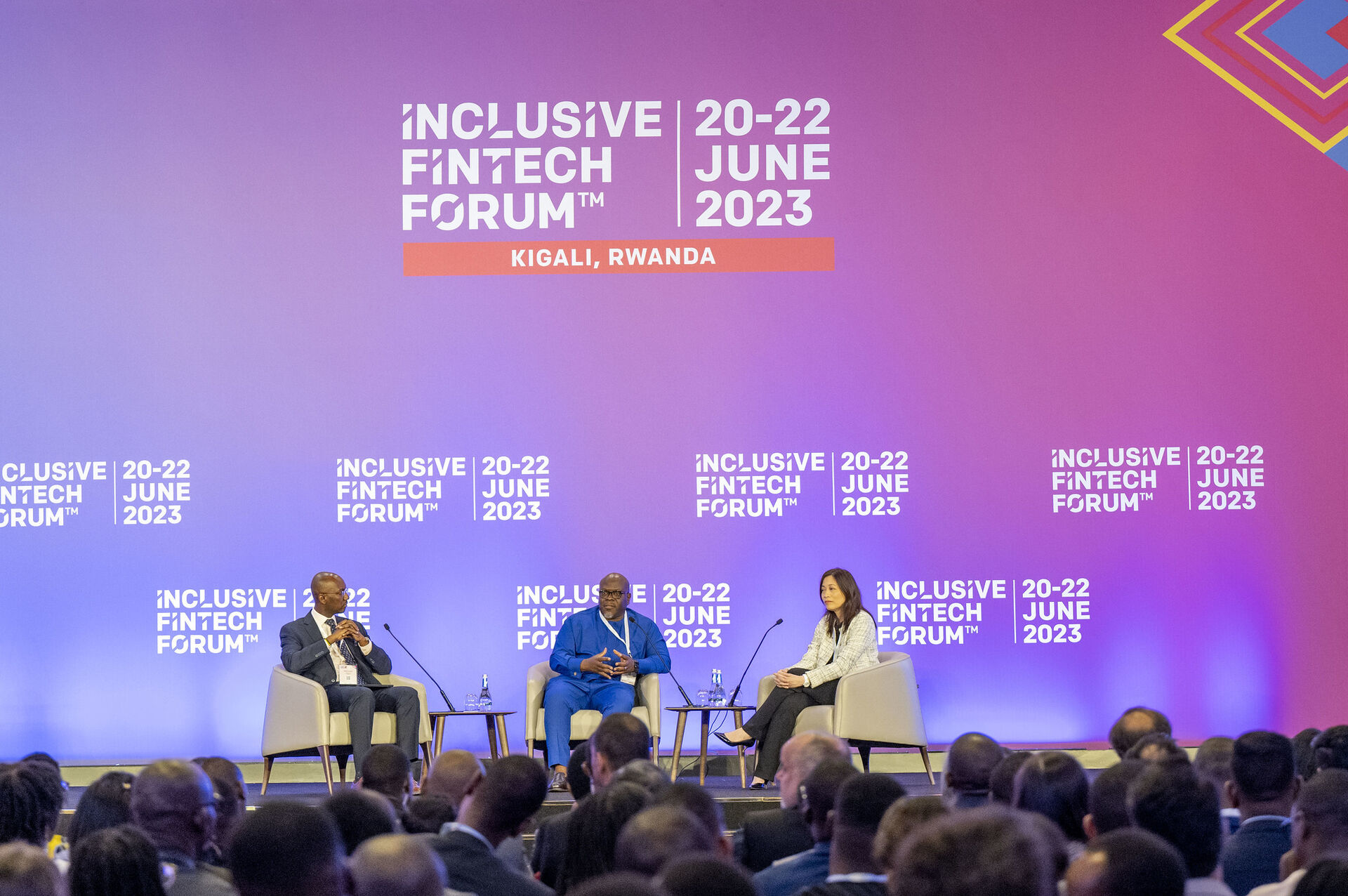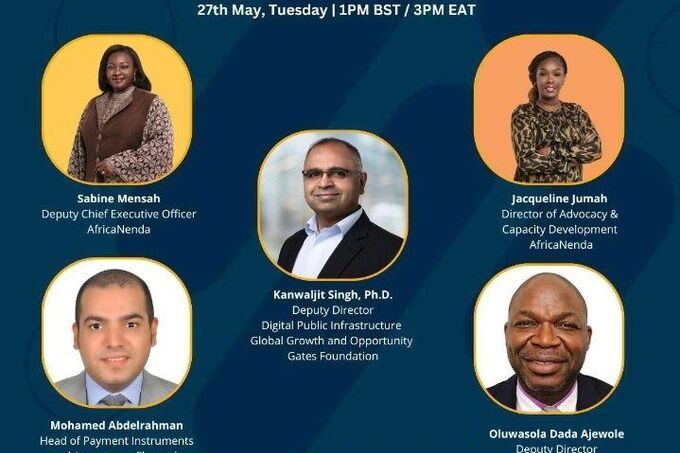
News
The Fintech of Things: Travel notes from the 2023 Inclusive Fintech Forum in Kigali
by Sabine Mensah, Deputy CEO AfricaNenda - 20 July 2023
In his opening remarks, Tidjane Thiam, the chairman of Rwanda Finance Limited, sets an inspiring stage by listing the top 10 companies by market capitalization in the world – Apple, Microsoft, Saudi Arabian Oil, Alphabet (Google), Amazon, Nvidia, Tesla, Berkshire Hathaway, Meta and Taiwan Semiconductor Manufacturing, according to the Motley fool. He highlighted insights to consider in our quest for innovation and growth in Africa: most of these companies started small but with a big idea; fueled by innovation, they conquered great market shares.

So, how does this relate to Africa?
We need to develop a solid business environment at the country level and encourage governments to invest significant resources in domestic small and medium-sized enterprises to foster local business growth. Tidjane Thiam believes that the rest will follow: “We are at the onset of amazing growth in Africa …and this century will go down as an African one!”, he said. This sentiment was echoed by H.E President Hakainde Hichilema of Zambia, who stated that “to basically provide for our people, we need to grow the markets and allow our businesses to grow”. So, to all African entrepreneurs, the time is now to benchmark, learn and tailor products, services, and solutions to the needs of African markets.
During the policy fireside chats, it was refreshing to hear from Singapore and Rwanda regulators. They acknowledged that it is not the role of government or regulators to innovate. Instead, they should create a conducive legal, regulatory, financial, and educational environment for innovation to flourish. Regulatory sandboxes provide a pathway for proactive experimentation by fintech companies under the supervision of regulators. No objection letters also allow for the development of innovative solutions in a market before regulation is mandated. Without such open-mindedness from regulators, there would be no MPesa today in Kenya and beyond. The discussions also addressed key challenges such as the lack of harmonisation in policy and regulations, lack of capital and skills. Governments should invest in Digital Public Infrastructures (DPI), leveraging Public Private Partnerships to build the digital foundations necessary for the fintech community to develop customer centric and last mile solutions for an inclusive digital economy. With Africa having the youngest population in the world, investing in digital skills and educational systems to train the next digitally native generation is a sure bet for prosperity. With the ambitions of the Africa Continental Free Trade Area, closer collaborations between regulators and policy makers at country, regional and continental levels is key for Africa’s journey for policy and regulatory harmonization. As HE President Kagame of Rwanda stated, “we must forge stronger partnerships for more equitable, accessible and sustainable digital transformation”.

Finally, I appreciated the discussions on digital public infrastructure, capital meets policy and fintech for good. There is no doubt that digital innovations have already enabled diverse mobile-led solutions that have advanced financial inclusion on the continent. The 2021 Findex highlighted that 33% of adults in Sub-Saharan Africa had a mobile money account, already. However, to optimize the impact of fintech, Africa needs to fulfill several pre-requisites:
- From a DPI perspective, widespread access to good connectivity and affordable data is crucial. Functional digital identity systems, and of course interoperable inclusive payment systems and data exchange platforms need to be in place.
- From a capital perspective, sustainable markets for local currency debt need to be developed to finance fintech growth. We need banks and pensions funds to invest in domestic and regional innovations in Africa. Additionally, the establishment of an R&D fund for fintech could be considered.
- From a policy perspective, harmonization needs to happen. The real questions are which policies and regulations and when? Starting with licensing passporting for fintech will certainly galvanize competition in the markets and enable more cross border solutions. Cloud infrastructure usage is another area that requires attention. According to Dr. Robert Ochola, CEO AfricaNenda, ‘a middle ground could be keeping customer data on premises in the country while processing it in the cloud’.

Everybody agrees that it will take a village to make it happen. Collaboration is key and how we cement collaboration between fintechs, regulators, policy makers, capital holders and ecosystem enablers is crucial. I fully endorse the statement from Ravi Menon, Managing Director of the Monetary Authority of Singapore, who noted that, ‘…together, we can shape a future where technology and finance converge to create a more prosperous, vibrant, and inclusive Africa’.
I eagerly look forward to the next IFF in Kigali!


